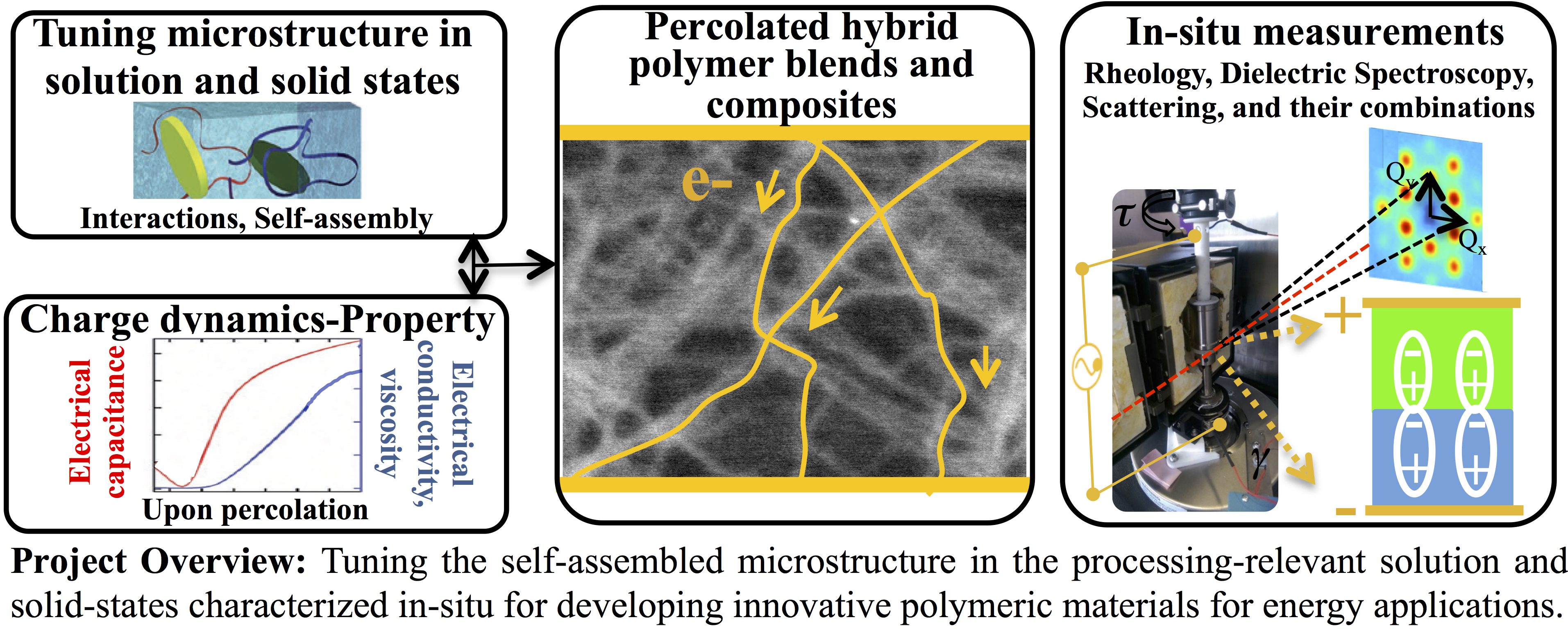2020 Virtual AIChE Annual Meeting
(3bt) Elucidating Structure-Property-Dynamics Relationships in Multi-Phasic Polymer Blends for Energy Applications
Author
My postdoctoral research aims to characterize the solution-state structure of complex soft materials, particularly, model anisotropic particles and polymer solution. I developed and characterized narrow poly-dispersed rod-like particles with tunable aspect ratio and flexibility by crystallization-driven self-assembly of polyethylene oxide/poly-L-lactic acid di-block co-polymers. Motivation to investigate polymer solution stems from the fact that commercial polymers have a broad distribution of molecular weights (Mw) (> 2) in which the complex interplay of Mw, Mwâs distribution, and concentration determines the topological interaction and the flow-behavior during processing and applications. In this perspective, I performed conformational studies on the semi-dilute solution of bi-dispersed polystyrene (PS) blends comprising of two mono-dispersed components of different Mw as a model system for the more complex and ubiquitous poly-dispersed polymers. Small-angle neutron scattering (SANS) measurements, theoretical and coarse-grained computational studies of polymer theories revealed long-ranged enthalpic mediation of single-chain conformation, inter-correlations, and concentration fluctuations of mono-dispersed PS upon crowding with a different Mw. The structural studies of model soft matter systems performed under quiescent conditions has laid the groundwork to in-situ investigate elevated flow-induced structural changes under industrially relevant shear rates using micro-capillary rheometry in combination with SANS.
The Bharati laboratory will leverage thermodynamic energy to tune self-assembled nanoscale structures and employ novel compatibilization strategies to generate and stabilize the morphology of polymer blends with specific functionalities. The research will offer new perspectives for structure-dynamics-property relationships to tailor hybrid polymer blends for various energy applications, including but not limited to electrical applications, flow batteries, current collectors, and solid polymer electrolytes for lithium-ion batteries. A comprehensive understanding will be achieved using advanced in-situ characterization techniques as well as theoretical and computational approaches in the processing-relevant solution and melt states, as summarized in the overview figure. The research is aimed to ultimately allow apriori design of innovative polymeric materials with tunable nanoscale structures and predictable application-specific macroscopic properties.
Research Interests: Polymer Blends and Nanocomposites, Conducting Polymers, Compatibilization, Self-assembly, Rheology, Dielectric Spectroscopy, X-ray and Neutron Scattering, Rheology in combination with Dielectric Spectroscopy.
Teaching Interests: Fluid Mechanics, Chemical Kinetics, Transport Phenomena, and Thermodynamics.
